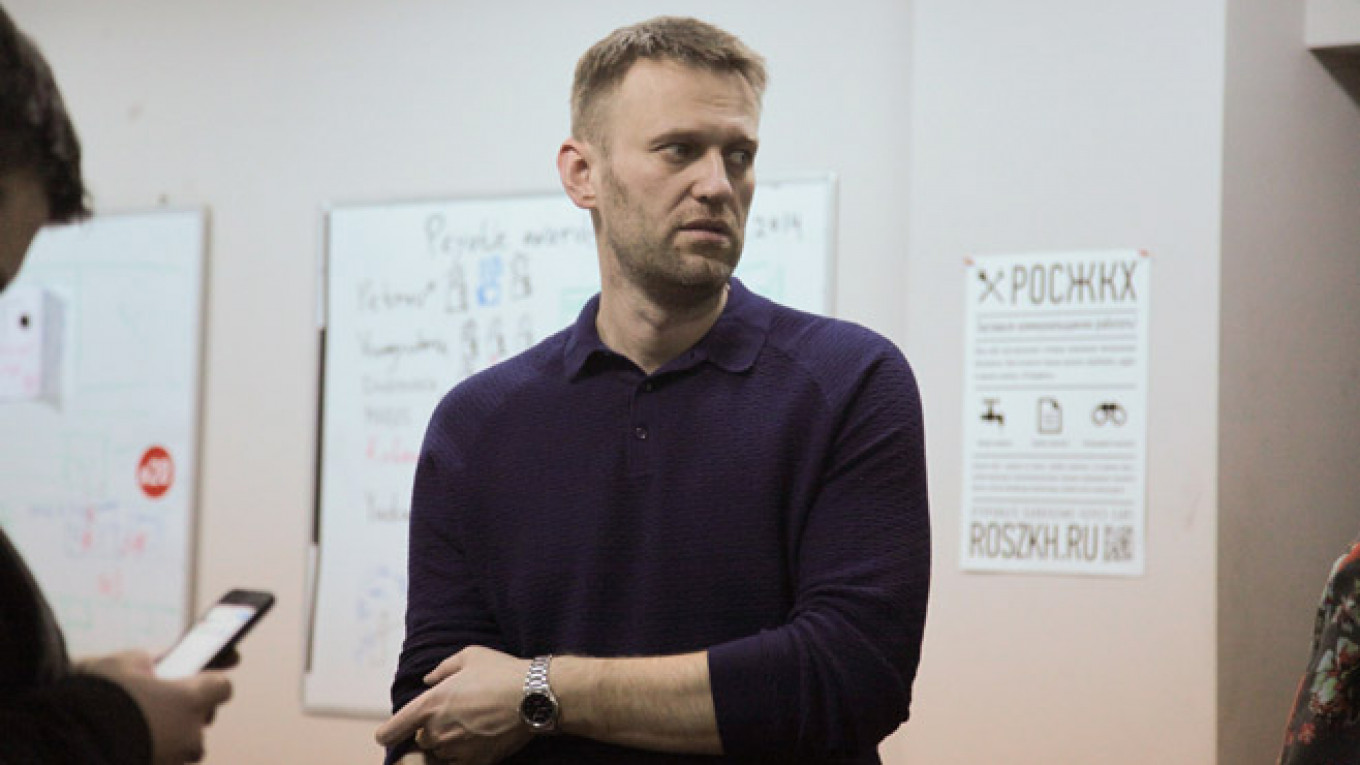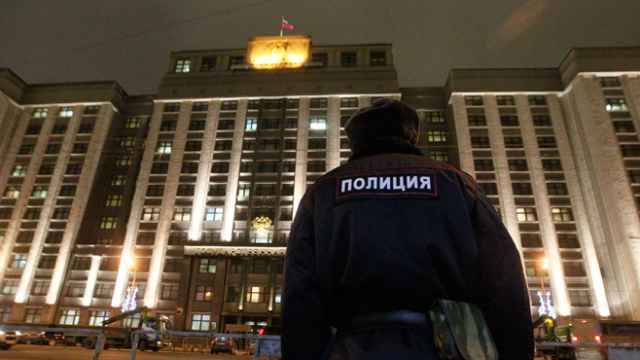An initiative by anti-corruption campaigner Alexei Navalny to battle graft among government officials prompted strong objections from officials themselves Monday, with warnings that the drive would mean a return to Stalinist repressions and lead to foreign governments orchestrating color revolutions in Russia.
The meeting was spearheaded by an intergovernmental working group of officials who had examined a proposal by Navalny's Anti-Corruption Fund to ratify the United Nations Convention Against Corruption, which would make "illegal enrichment" by government officials a criminal offense and leave officials who cannot account for the source of their wealth open to prosecution.
Deputy Interior Minister Igor Zubov argued that all "color revolutions" — popular uprisings in ex-Soviet countries that the Kremlin has repeatedly claimed are funded and orchestrated by foreign governments — had begun with such fights against corruption, Vedomosti reported.
The proposal by Navalny, a prominent opposition activist who has been labeled a U.S.-sponsored provocateur by his pro-Kremlin detractors, was backed by at least 100,000 Internet users who signed a petition in its favor, according to the Kommersant newspaper.
But participants at the meeting — including representatives of the Kremlin, Interior Ministry and Justice Ministry — were unanimously against it.
"The introduction of this legislation will put us on the path to a new 1937. Only it won't be about counterrevolutionary activities, but anti-corruption activities," Mikhail Fedotov, head of the Kremlin's human rights council, was cited as saying by the Interfax news agency.
Fedotov was referring to the worst year of the Great Purges under Josef Stalin, which saw mass repression, arbitrary executions and more than 1 million people put on trial for "counterrevolutionary crimes."
"Do we want new political repressions? I hope not," Fedotov was cited as saying.
Oleg Plokhoi, head of the Kremlin's anti-corruption department, said criminalizing "illegal enrichment" would violate the presumption of innocence enshrined in law, forcing officials accused of corruption to prove their innocence by explaining the source of their wealth, rather than forcing prosecutors to prove a crime had been committed.
"The foundations of our justice system do not allow for criminal measures to be taken against public officials if it has not been proven that they received their funds illegally," Plokhoi was cited as saying by Kommersant.
A representative for the Justice Ministry echoed that sentiment, saying Russian legislation already had provisions for prosecuting officials found guilty of corruption, such as charges of taking bribes or misuse of budget funds, Kommersant reported.
Navalny himself was barred from Monday's event, writing on Twitter: "They're not letting me in to the Open Government session. They say 'only the authors of the initiative.' That's funny, because formally I am the author."
Russian journalist Ilya Shepelin, who said he was also denied entry to the meeting, cited the meeting's chairman, Minister for Open Government Relations Mikhail Abyzov, as saying the event had been restricted to include only the government's pool of reporters due to the small premises.
Despite the flood of criticism by officials, the meeting ended with participants agreeing to hold a follow-up meeting, Navalny wrote on his blog.
According to Vedomosti, only 14 members of the working group out of a total of 35 attended.
Contact the author at [email protected]
A Message from The Moscow Times:
Dear readers,
We are facing unprecedented challenges. Russia's Prosecutor General's Office has designated The Moscow Times as an "undesirable" organization, criminalizing our work and putting our staff at risk of prosecution. This follows our earlier unjust labeling as a "foreign agent."
These actions are direct attempts to silence independent journalism in Russia. The authorities claim our work "discredits the decisions of the Russian leadership." We see things differently: we strive to provide accurate, unbiased reporting on Russia.
We, the journalists of The Moscow Times, refuse to be silenced. But to continue our work, we need your help.
Your support, no matter how small, makes a world of difference. If you can, please support us monthly starting from just $2. It's quick to set up, and every contribution makes a significant impact.
By supporting The Moscow Times, you're defending open, independent journalism in the face of repression. Thank you for standing with us.
Remind me later.






